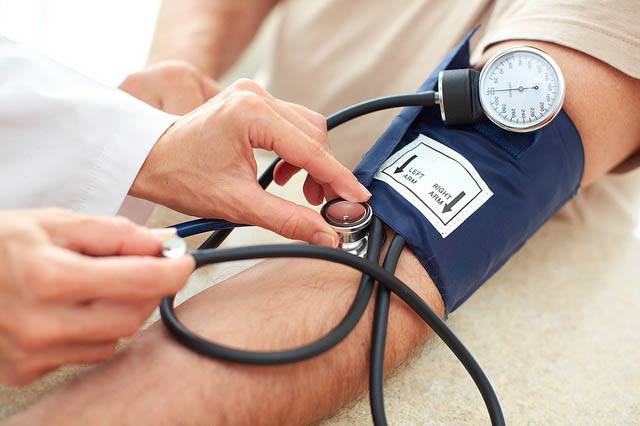
(CC BY 2.0/Flickr user Fort George G. Meade Public Affairs Office)
SUNY Geneseo’s Department of Student Health and Counseling was recently designated as a “Medical Home” by the Accreditation Association of Ambulatory Health Centers (AAAHC). Of the nearly 4,000 higher education institutions in the U.S., only 17 have achieved Medical Home accreditation, considered by the AAAHC as the highest achievement for primary care.
According to Student Health and Counseling Medical Director Steven Radi, M.D., Medical Home is a model of primary care that is patient-centered, and is comprehensive and accessible, to meet the needs of the individuals served. “We serve as a student’s medical home away from home,” he said. The model is endorsed by the American Medical Association, the American Academy of Family Physicians, and the American Academy of Pediatrics.
Medical Home accreditation is based on a rigorous year-long application process and a two-day on-site review by an AAAHC surveyor. The review assessed Geneseo’s Health and Counseling on hundreds of critical standards, such as patient rights and responsibilities; organizational governance and administration; the patient/care team relationship; comprehensiveness, continuity, and accessibility of care; clinical records and health information; and quality of care.
“Students can turn to a number of places for health care, including urgent care centers and emergency rooms, but none of those places would have the same approach as we have here at Geneseo,” said Robert Bonfiglio, Ed.D., vice president for Student and Campus Life. “As a liberal arts college, we’re interested in the education of the whole person, and the Medical Home concept is consistent with that.”
“Students need to know that they are partners in their own care and an integral part of the process of decision-making for their health,” said Radi. “That’s a huge piece of the concept of Medical Home.”
Key differentiators that helped Geneseo’s Health and Counseling department qualify as a Medical Home are its comprehensiveness and accessibility, said Radi. Many college campuses separate their health and counseling functions, and multiple buildings with independent departments hamper those schools’ ability to provide comprehensive medical care. At Geneseo, health and counseling have been integrated for nearly 20 years with a full-time medical director at the helm. The more recent inclusion of the Health Promotion office and Alcohol and Other Drugs (AOD) program aligns Geneseo with the comprehensive Medical Home model.
“I can’t think of a service we are not providing: primary care, medical services, mental health services, alcohol and drug services, health promotion,” said Radi. “Our services are quite comprehensive, and that’s not uniform throughout the SUNY system.”
Geneseo also excels at making health care accessible to its students. Care is available by appointment or on a walk-in basis. Students can go to several locations in addition to the main Health and Counseling building: Counselors meet with students in the Onondaga residence hall and around campus in informal places, and a new South Village Health Center aimed at first-year students will offer services beginning next fall. A campus community resource nurse in Sturges Hall has improved accessibility for traditionally underserved populations: international students, AOP students, students at Geneseo for their study abroad location. And the number of counseling staff has increased as the demonstrated needs have risen.
“Our major challenge is mental health, and this is the same throughout the country,” said Radi. “The population is coming to us with increasing mental health needs. The College and the president have made this a real focus, which is a great thing because we see the effects of mental health issues all over campus.”
In addition to valuing comprehensiveness and accessibility, the Medical Home designation places extra emphasis on education, making the model especially appropriate for higher education institutions. “Our nurses and counselors are not only health care providers, but because they work on a college campus they conceive their roles as caring and supportive educators, helping students learn how to care for themselves,” said Bonfiglio.
Health and Counseling’s educational process never ends, thanks to a 25 percent turnover in the student body every year. “Part of our mission here, always, is to try to teach students how to access and use the medical system,” said Radi. “They’re just testing adulthood. There’s so much they need to learn.”
Related Stories
No post found!
